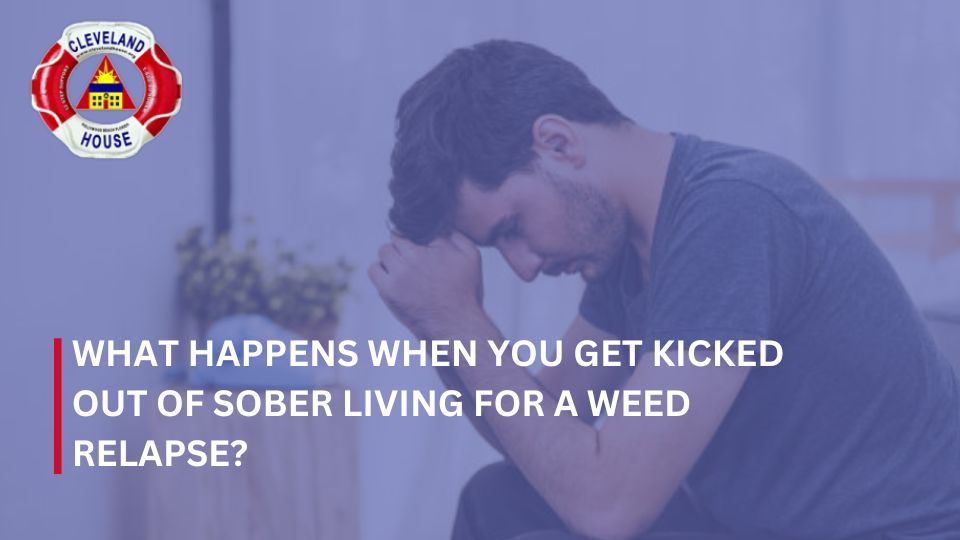
Quick Contact
Rehab is a scam. At least it is in many shady South Florida treatment programs.
In the sun-soaked expanse of South Florida, places like Pompano Beach, West Palm Beach, Deerfield Beach, Hollywood, Fort Lauderdale, and Margate have become synonymous not only with the alluring blend of seaside resorts, palm-lined streets, and vibrant nightlife, but also with an underbelly of deceit and corruption. The Florida “rehab shuffle,” a nefarious cycle of fraud and relapse, has seen unethical sober living homes collude with corrupt rehabs, exploiting vulnerable individuals and milking millions of dollars from insurance companies in the process.
The modus operandi of these fraudulent organizations has been unscrupulous and alarming. Lured by the promise of treatment and recovery, many people struggling with addiction found themselves in a vicious cycle of discharge and readmission, while insurance companies were billed exorbitantly for dubious treatments and services. This scam not only played with the lives of individuals in desperate need of help, but also injected a deadly strain of corruption and mistrust into South Florida’s recovery community.
However, this bleak landscape of fraud has seen a ray of hope in recent years with the introduction of the Sober Home Task Force. Created to combat the epidemic of rehab scams in Florida, this task force has been instrumental in cleaning up the corrupt sober living homes and rehab centers. Through rigorous investigations, legal action, and stringent regulations, the task force has made significant strides in curbing the Florida rehab shuffle and restoring faith in the rehab community. It has not only brought corrupt operators to justice but also created safer, more trustworthy environments for individuals seeking recovery. It’s a beacon of hope in an otherwise cloudy landscape, signaling a much-needed shift towards integrity and care in the Florida rehabilitation scene.
When it comes to seeking rehabilitation services for addiction, there are many genuine programs that can offer tremendous help. However, with the proliferation of rehab centers across the globe, it has become crucial to be vigilant about potential scams that prey on the vulnerability of individuals and their families. Here are seven of the worst rehab scams to look out for:
Florida Rehab Scam #1: Exorbitant Fees: Unscrupulous rehab centers may charge astronomical fees for their services, far above industry standards.
They exploit desperate individuals and families, promising them the best treatments available. Always ensure that the fees charged match the services rendered and are in line with industry norms.
This is one of the most prevalent scams in the rehab industry. Scam rehab centers often exploit desperate situations, charging families and individuals incredibly high prices for basic services under the guise of offering “premium” or “luxury” treatments. These facilities might advertise state-of-the-art facilities, a high staff-to-patient ratio, or specialized treatment modalities as justifications for their high costs.
However, in many cases, the cost does not correspond to the quality or range of services offered. Some of these rehab centers offer the same treatments as reasonably priced, reputable centers but at significantly higher costs. It’s also not uncommon for such facilities to include hidden charges, making the actual cost of treatment even more exorbitant than initially quoted.
This doesn’t mean that expensive rehab centers are inherently fraudulent; some genuinely offer high-quality care and have costs associated with maintaining their level of service. However, it’s crucial to conduct thorough research before committing to a facility. Compare the costs, facilities, and services of different rehab centers. Consult with healthcare professionals or trusted sources about reasonable prices for the services you require.
Additionally, inquire about the facility’s billing policies. Ensure they offer a clear breakdown of costs and what services they cover. A reputable rehab center should be able to justify its fees in terms of the services they provide.
The financial strain of treatment should never be an additional burden to the already challenging journey of recovery. It’s essential to find a rehab center that offers quality care at a fair, transparent price, and prioritizes the patient’s wellbeing above profit.
Florida Rehab Scam #2: Fake Credentials: Some centers may claim to have credentials, certifications, and affiliations with renowned organizations that they don’t actually have. Always verify any such claims independently.
In an effort to attract patients, some unscrupulous rehab centers may present false qualifications or affiliations. They may claim to have accreditations from prestigious healthcare organizations, have staff members with advanced degrees and certifications, or boast partnerships with renowned hospitals or universities. These claims, if untrue, are designed to lend the facility an undeserved aura of credibility and trust.
Credentials and certifications serve as a testament to a facility’s commitment to maintain specific standards of care. For example, in the United States, legitimate rehab centers often have accreditations from organizations like the Joint Commission or the Commission on Accreditation of Rehabilitation Facilities (CARF). Such accreditations indicate that the facility meets a recognized standard of care and service.
When assessing a rehab center, it’s crucial to independently verify any credentials or affiliations they claim to have. This verification can usually be done online through the accrediting organization’s website, which should provide a list or database of accredited institutions.
Also, ask about the qualifications and licenses of the medical and counseling staff. Professionals in a rehab center should hold relevant degrees and certifications in areas such as addiction counseling or mental health. These qualifications should be verifiable through professional boards or regulatory bodies.
If a rehab center cannot provide proof of their claimed credentials or if you find discrepancies during your research, it may be a sign of fraudulent activity. Remember, legitimate rehab centers will have no problem proving their qualifications and will be transparent about their affiliations and the credentials of their staff.
Florida Rehab Scam #3: Guaranteed Success: Addiction recovery is a complex process that depends on many variables, including individual commitment, the nature of the addiction, and the quality of care provided. If a rehab center guarantees success, it’s a red flag. No legitimate rehab center can assure a 100% success rate.
Any rehab center that guarantees a 100% success rate is cause for concern. Addiction is a complex condition affected by various individual factors including biological characteristics, mental health status, social circumstances, and the nature of the substance involved. Therefore, its treatment and recovery outcomes will naturally differ from one individual to another.
Guarantees of success can create false expectations for individuals seeking help and their loved ones, exploiting their hope and vulnerability. This practice is not only unethical but also dangerous, as it may cause significant emotional harm if the guaranteed results are not achieved.
In reality, the road to recovery often involves setbacks and relapses. These are not signs of failure but are parts of the recovery journey that need to be addressed and incorporated into the ongoing treatment plan.
A credible rehab center will never guarantee success but will focus instead on providing comprehensive, individualized treatment plans designed to support each patient’s unique journey. They will be upfront about the challenges of recovery and offer continued support, even in the face of relapse.
Moreover, the measure of success in addiction recovery is not solely determined by abstinence. Improvement in overall quality of life, including better mental and physical health, restored relationships, stable housing, and gainful employment, are also essential indicators of successful recovery.
Always be skeptical of a rehab center that promises certain success. Instead, look for a facility that presents a realistic view of recovery, offering continued support and comprehensive care tailored to the individual’s needs.
Florida Rehab Scam #4: Overly Aggressive Marketing: Beware of centers that use high-pressure sales tactics. If they’re aggressively pursuing you, offering exclusive deals or pushing you to make a hasty decision, this is cause for concern. Reputable rehabs provide sufficient time and space for potential patients to make informed decisions.
Overly Aggressive Marketing: Reputable rehab centers typically rely on professional, informative, and compassionate approaches when interacting with potential patients or their families. However, some centers resort to overly aggressive marketing tactics that pressure individuals to make immediate decisions. These can range from incessant calls and emails to offering limited-time deals or even making unfounded promises.
High-pressure sales tactics play on the desperation and vulnerability of people seeking help for addiction. The goal is to make a quick sale, often without providing sufficient time for potential patients or their families to fully consider the implications or do comprehensive research.
It’s crucial to be wary of such pressure tactics. Making the decision to enter a rehab facility is significant and should not be rushed. Individuals and their families need time to evaluate different options, understand the treatment approaches, check the credentials of the facility and staff, and make sure the financial commitment is manageable.
A reputable rehab center will respect your need for time and information. They will be willing to answer any questions you may have and provide all necessary details about their program. They will also encourage you to seek advice from professionals or others you trust before making a decision.
Remember, the choice of a rehab facility is too critical to be made under pressure. Take your time, gather all the information you need, and only proceed when you feel confident about your decision. Be wary of any center that attempts to rush this process or pressure you into committing immediately.
Florida Rehab Scam #5: Lack of Personalized Care: A one-size-fits-all approach does not work in addiction treatment. Beware of rehab centers that do not offer individualized treatment plans tailored to the specific needs of each patient. Effective rehabilitation requires a personalized approach that addresses the unique challenges each individual faces.
Lack of Personalized Care: Addiction is a complex disorder that requires a personalized approach for effective treatment. Every individual struggling with addiction has a unique story, with varying degrees of underlying issues, different types of substances involved, distinct health implications, and specific personal, social, and psychological contexts. Thus, a one-size-fits-all approach is not only ineffective but can also be detrimental to a patient’s recovery process.
Beware of rehab centers that do not offer individualized treatment plans tailored to the specific needs of each patient. Such facilities might implement standard programs without considering individual differences, needs, and preferences. This lack of personalization often leads to subpar care, inadequate attention to co-occurring disorders, and a higher likelihood of relapse post-treatment.
An effective rehab center will conduct a thorough assessment of each patient upon admission. This assessment should consider medical history, the nature of the addiction, co-occurring mental health issues, personal circumstances, and the patient’s own goals for recovery. Based on this, a personalized treatment plan should be developed, integrating various elements such as detoxification, counseling, medication (if required), therapy sessions (individual, group, and family), and aftercare planning.
A lack of personalization may be indicative of a rehab center focusing more on the volume of patients rather than the quality of care. This approach neglects the fundamental principle of effective addiction treatment: treating the whole person, not just the addiction. Always opt for a rehab center that emphasizes a personalized approach to treatment, with ongoing adjustments to the plan as needed.
Florida Rehab Scam #6: Patient Brokering: This unethical practice involves rehab centers paying third parties for referring patients to their facility. It’s an exploitative practice that puts profits before patient care and is illegal in many jurisdictions. Avoid any center or referral service that appears to be engaging in patient brokering.
Patient brokering, a highly unethical and often illegal practice, is unfortunately prevalent in the rehab industry. It involves rehab centers paying third parties, often known as “brokers,” for referring patients to their facility. These brokers might use various strategies to convince individuals struggling with addiction or their families to choose a particular rehab center, without any genuine consideration of the individual’s needs and the quality of care provided by the facility.
This practice is detrimental for several reasons. Firstly, it treats patients as commodities rather than individuals in need of compassionate care. Secondly, it allows unscrupulous rehab centers to put profit over patient welfare. Thirdly, it misleads patients and their families, who believe they are getting impartial advice, but are in fact being steered towards a decision that benefits the broker financially.
In many jurisdictions, patient brokering is illegal due to the exploitative nature of the practice. For example, in the United States, several states have laws explicitly outlawing patient brokering in the healthcare sector.
To avoid falling victim to patient brokering, it’s essential to conduct independent research when choosing a rehab facility. Don’t rely solely on the advice of third-party referral services, especially those who seem overly insistent on a particular facility or make the referral process seem like a transaction. Reputable referral services should always prioritize the patient’s needs, consider a variety of suitable options, and provide transparent information about their relationship with any suggested facilities.
Florida Rehab Scam #7: Insurance Fraud: Some scam rehab centers may engage in insurance fraud, billing for services that were never rendered, or inflating the costs of services provided. Always double-check your billing statements and report any discrepancies immediately.
Some disreputable rehab centers engage in insurance fraud as a means to exploit both patients and insurance providers. This illegal activity can take many forms, such as billing for services that were never rendered, double billing, providing unnecessary services, or inflating the costs of services provided.
For instance, a rehab center might charge for daily individual therapy sessions when the patient only received group therapy, or they might bill for extensive medical testing that was never performed. Some facilities might intentionally keep patients longer than medically necessary, only to maximize insurance payments.
These deceptive practices not only place a significant financial strain on the insurance system, but they can also cause harm to patients. Patients might receive unnecessary or inappropriate treatments, have their recovery progress misrepresented, or find themselves in a cycle of continuous treatment without substantial improvement, all in the name of maximizing billing.
To protect yourself from insurance fraud, it’s crucial to understand your insurance coverage thoroughly and keep track of the services you receive during treatment. Regularly review any billing statements or Explanation of Benefits (EOB) you receive from your insurance provider. If you spot any discrepancies or charges for services you didn’t receive, report these to your insurance company immediately.
In addition, choose a rehab center that demonstrates transparency in its billing practices. They should be able to provide a detailed explanation of all charges, the services covered, and any out-of-pocket expenses you can expect. By staying vigilant and understanding the financial aspects of your treatment, you can help protect yourself from insurance fraud in rehab centers.
These seven scams can rob patients not only of their money but also of their chance to recover.
Awareness is a powerful tool against these practices. Be vigilant, ask questions, do your research, and only choose a rehab center that you trust is working in your best interest.
While it’s important to be aware of potential pitfalls and scams in the rehab industry, it’s equally crucial to recognize that there are many legitimate, dedicated centers offering effective treatment for addiction. With the right approach and support, long-term recovery from addiction is not only possible but also highly achievable.
A well-planned detox program forms the initial step of recovery, safely managing withdrawal symptoms and stabilizing the individual’s physical health. This stage lays the groundwork for further treatment and should be carried out under the supervision of medical professionals to ensure safety and comfort.
Following detox, a residential rehab program can provide intensive, comprehensive care. Here, individuals can explore the roots of their addiction, develop coping mechanisms, and begin to rebuild a life free from substance abuse. The personalized care plan, involving a mix of therapies like cognitive-behavioral therapy, motivational interviewing, and family therapy, helps address the unique needs and challenges of each patient.
Next, intensive outpatient treatment allows for a gradual transition back into everyday life while maintaining a high level of support. It combines the flexibility of living at home or in a sober living environment with the structure of regular therapy sessions, helping individuals strengthen their recovery skills within real-world contexts.
Sober living environments provide a supportive, substance-free setting for individuals in recovery. These places can be vital in reinforcing the skills and strategies learned during treatment, and they offer a sense of community that can be immensely beneficial for maintaining long-term sobriety.
Recovery from addiction is indeed a challenging journey, but it’s one that countless individuals have successfully navigated. With the right help and support, anyone struggling with addiction can reclaim their life and build a healthier, happier future. So, remember, the path to recovery may seem daunting, but with each step, you’re moving closer to a life free from the grip of addiction.
Recent Posts
About
The Cleveland House is a Men’s Sober Living Residence that has set the standard in addiction recovery housing in South Florida since 2003. We invite you to join us on your journey through sobriety…call 7 days a week at: (888) 80-SOBER or (954) 931-2500.

